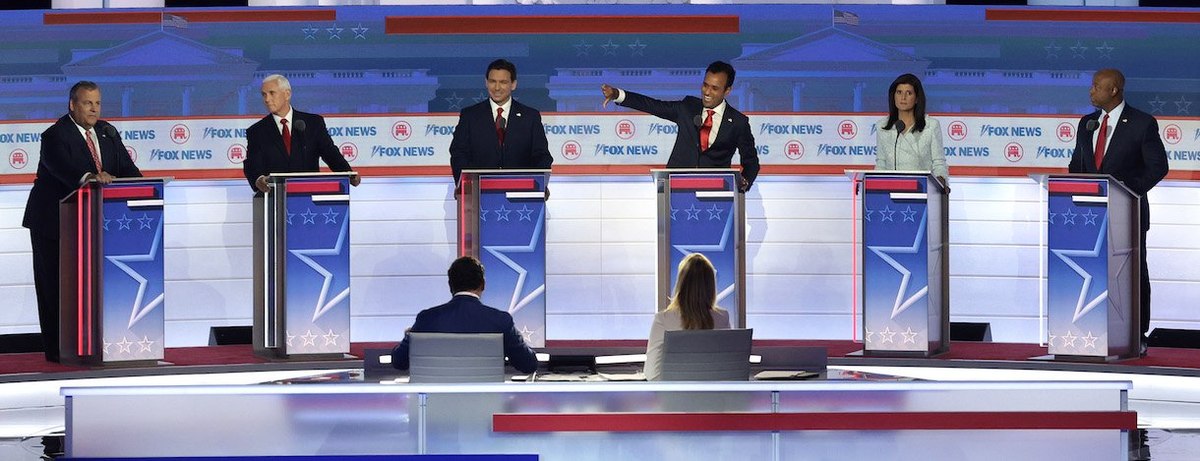The man who will not be in tonight’s Republican presidential debate, former President Donald Trump, remains the top choice of Republicans and Republican-leaning Independents for the GOP nomination, and by a 39-point margin over his closest competitor. New polling by the Economist/YouGov finds that about half (51%) say they would vote for Trump if the primary were held today, and only 12% say they'd vote for Florida Governor Ron DeSantis, Trump's top rival. Two other candidates — former South Carolina Governor Nikki Haley and former Vice President Mike Pence — have risen marginally in the last month, though both remain in single digits.
DeSantis is the candidate most likely to be selected as a second choice, with businessman Vivek Ramaswamy and Pence also in double digits as second-choice picks. Republicans and Republican-leaners who choose Trump as their first choice break the same way as Republicans and Republican-leaners overall — of whom they make up about half the total — when it comes to a second choice: DeSantis first, followed by Ramaswamy and Pence. As for who would disappoint Republicans if nominated, one-quarter (24%) say they would be disappointed by a Trump nomination, but the largest shares say they would be disappointed if former New Jersey Governor Chris Christie (48%) or Pence (37%) were the nominee.
Half of Republicans and Republican-leaners (50%) say they will definitely or probably watch tonight’s GOP debate hosted in Simi Valley, California. Slightly fewer — 45% — say they will likely watch Trump’s address to union members in Detroit, which will take place at the same time as the debate. Most Republicans and Republican-leaners who say they are likely to watch one Tuesday night event also say they are also likely to watch the other.
Republicans and Republican-leaners are divided on whether Trump should have agreed to participate in the second debate tonight, though more say he should have (40%) than say he shouldn't have (31%).
See the toplines and crosstabs from the Economist/YouGov poll conducted on September 23 - 26, 2023 among 1,500 U.S. adult citizens.
Methodology: Respondents were selected from YouGov’s opt-in panel using sample matching. A random sample (stratified by gender, age, race, education, geographic region, and voter registration) was selected from the 2019 American Community Survey. The sample was weighted according to gender, age, race, education, 2020 election turnout and presidential vote, baseline party identification, and current voter registration status. Demographic weighting targets come from the 2019 American Community Survey. Baseline party identification is the respondent’s most recent answer given prior to November 1, 2022, and is weighted to the estimated distribution at that time (33% Democratic, 31% Republican). The margin of error for the overall sample is approximately 3%.
Image: Getty











